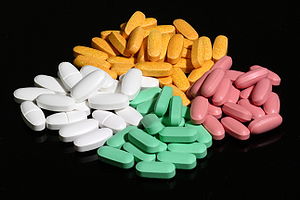Dietary supplements are not only expensive, but they aren’t meant to substitute for a balanced diet. These products are only to supplement those things that you might not be getting enough of. Each individual is different, and many people don’t need the recommended daily intake of some nutrients. If you are eating fairly balanced meals on a regular basis, you probably don’t need to take supplements; if you aren’t, a supplement cannot make up for the fact that you have unhealthy eating habits.
Eating whole food is much better for you than taking a dietary supplement because it provides not only more kinds of nutrients, but it provides them in a balanced way. While whole foods provide your body with vitamins and minerals, they also offer needed energy in the forms of protein, carbohydrates and fats. Whole foods also contain phytonutrients. Phytonutrients protect plants from the challenges that they face in their environment, things such as ultra-violet radiationand predatory pests. Humans cannot produce their own phytonutrients to protect ourselves, but we eat the plants and that protection extends to us. One kind of vegetable may have many types of phytonutrients, and when we eat this plant, they work together to give humans even more benefits.
While in a perfect world we would all sit down with our family to a healthy meal, this isn’t always an option. At work, deadlines or other issues may cause you to grab something quick and unhealthy, or even skip lunch all together. Even if you’re a stay-at-home mom, your days are filled with laundry, homework, making dinner and any other things that may pop up during your day. It’s not that unusual to forget about eating until you’re cooking dinner. Try keeping some healthy snacks on hand that you can eat at your desk, or grab as you are on your way out the door. Whole wheat crackers, granola bars and cut up fruits and vegetables may not be a full meal, but at least you’ll be giving your body the fuel that it needs in order to keep going.
